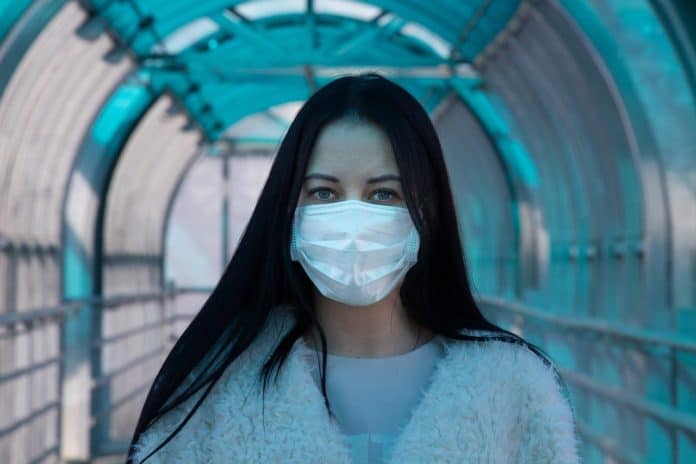Can wearing a face mask protect you from coronavirus?
In times of a COVID-19 lockdown, your safety is really in your own hands. While it has been advised to absolutely avoid stepping out of the house unless neccessary, wearing a mask when you are in a contagious area, apart from practising a good form of hygiene is a good measure. In fact, ever since the number of coronavirus cases started shooting up, the number of searches for “what is the best mask to prevent coronavirus” also rose. Pharmacies have also run out of masks.
Who should be wearing a mask?
The Centres of Disease Control and Prevention recommends that masks and protective gear be only worn by people in four categories:
–If you show symptoms of a flu
-If you belong to a high-risk category (chronic illnesses, underlying medical conditions) and go out.
-Are a healthcare professional
-Or around someone who is affected.
Which mask works better?
That being said, there is again a big misconception considering that wearing just about any piece of cloth that covers your mouth will protect you during these times of crisis. Just like there is a mask which effectively filters out pollutants from the air, different masks work in different ways in catching and stopping bacteria and viruses from entering your body’s airways.
Here is an explainer which can help you decide which mask is good for you and which works better:
Also read: India not at COVID-19 community transmission level: HM
1 – Surgical masks
The most commonly available form of masks in the market, surgical masks are the ones which are slightly loose-fitted around the mouth and used to protect a person against large splashes of droplets, water, sprays and used in medical facilities. Since they are so popular and cost-effective, they also come in a variety of sizes, colours and types.
While they do cover your mouth, surgical masks can’t really protect you from catching or transmitting the coronavirus or any such microbe in the air, since it has loose gaps which can help the germs crawl in.
That being said, a high-grade surgical mask can stop the transmission of different kinds of viruses (up to 80-90%), especially if used by a person who is sick. It can help prevent large particles expelled by the wearer, such as spit or mucous, from entering the environment. If the wearer coughs or sneezes, the surgical mask will help collect the larger particles expelled.
2 – N95 and FFP1 masks
N95 respirator masks are again widely being used right now to lessen the spread of coronavirus. It’s slightly more tight-fitted and vague looking, making it a better alternative to surgical masks. Masks with N95 rating filter 95% of particles 0.3 microns or larger in diameter, roughly the size of a single virus and include PM 2.5. Some masks also have an attachment called the exhalation valve, which can filter out humidity build-up. They also work drastically better in filtering out and stopping pollutants, viruses and bacteria from entering the mouth or nasal passageway, with an efficacy of 95%.
However, they are also slightly more expensive, costing-wise. Plus, N95 masks need to be fitted and tested beforehand so as to make it effectively work for you. Compared to all other masks, N95 masks offer the highest level of protection.
FFP1 masks are considered an alternative to respiratory masks, such as the N95 ones. While N95 masks safely filter out 95% of the pollutants, viruses and tiny particles, FFP1 masks protect a person from breathing in particles of more hazardous quality. They are usually also more securely fitted around the nose and the mouth so as to ensure that toxic or dangerous particles do not enter in.
Also read: India’s response to Covid-19: read the opinion of WHO
3 – Activated carbon masks
As the name suggests, these masks contain an activated carbon filter, which help collect and filter out the pollutants and germs and breathe in purer air. Studies also say that carbon filters present in the mask may even improve your lung capacity and respiratory muscles, making it a good buy if you live in an extremely polluted city.
That being said, these masks work very well in fighting pollution and tiny particles like bacteria and fungi which spread through the air we breathe in, and thereby, prevent allergies. However, they do not work exceptionally well in fighting or preventing viruses like COVID-19 from coming in contact. They can only trap a minuscule number of viruses (10-20%) and hence, may not be the best choice right now.
4 – Cloth and sponge masks
Over the recent weeks, with an acute shortage of masks supply in the market and lack of protective gear available, many are turning to homemade masks made out of different fabrics like cloth or sponge. While homemade masks do not match the effectiveness, they are better than having nothing on hand to fight the spread of germs, especially during a pandemic situation like this.
Simply put, homemade masks offer LESSER protection than surgical or respirator masks. However, as the CDC guidelines read, they can help a person keep the face area clean and prevent the spread of nasty germs and other contagious viruses. Sanitization and disinfecting are crucial steps which can prevent and stop the spread of coronavirus. Cloth and sponge masks filter out about 50% of bacteria and dust pollutants. How effectively they work in fighting viruses is still under study. Please note, using a homemade mask is a preventive mask which can come in handy during urgent times and should not be solely depended on as a form of defence.


